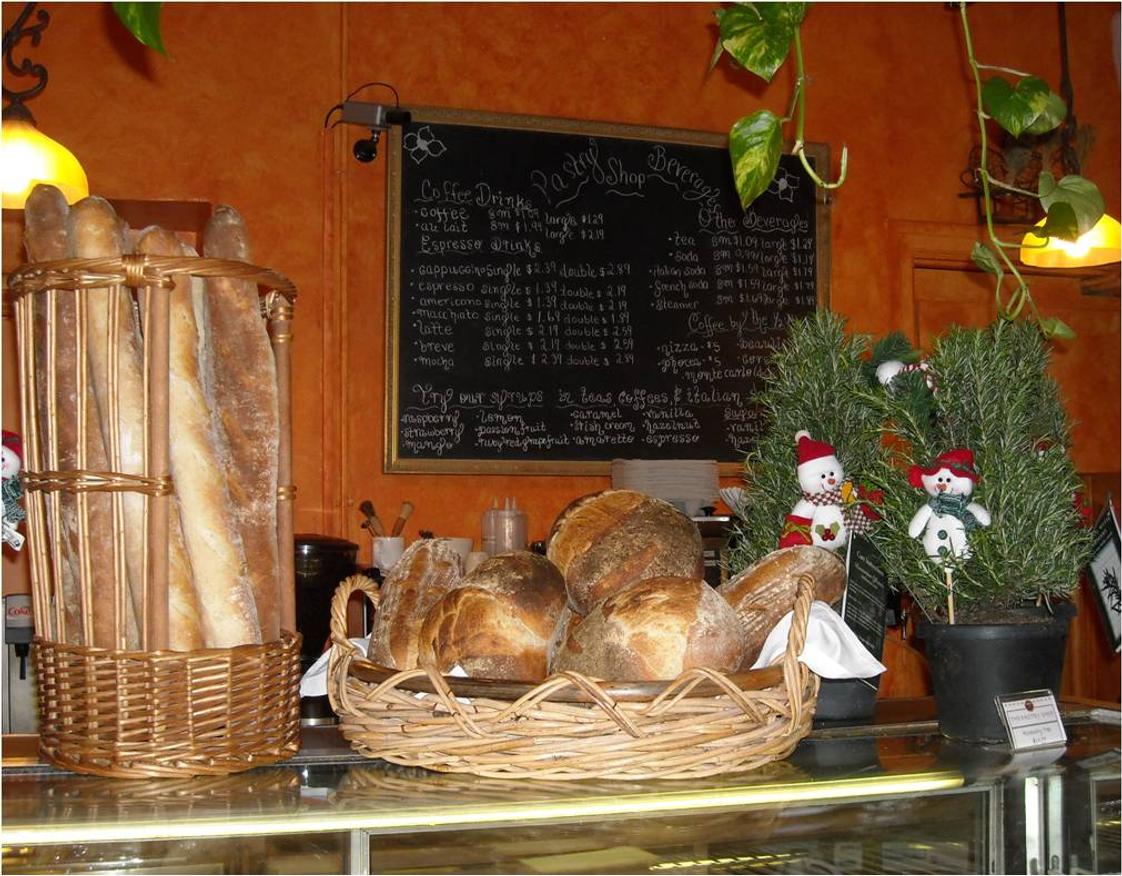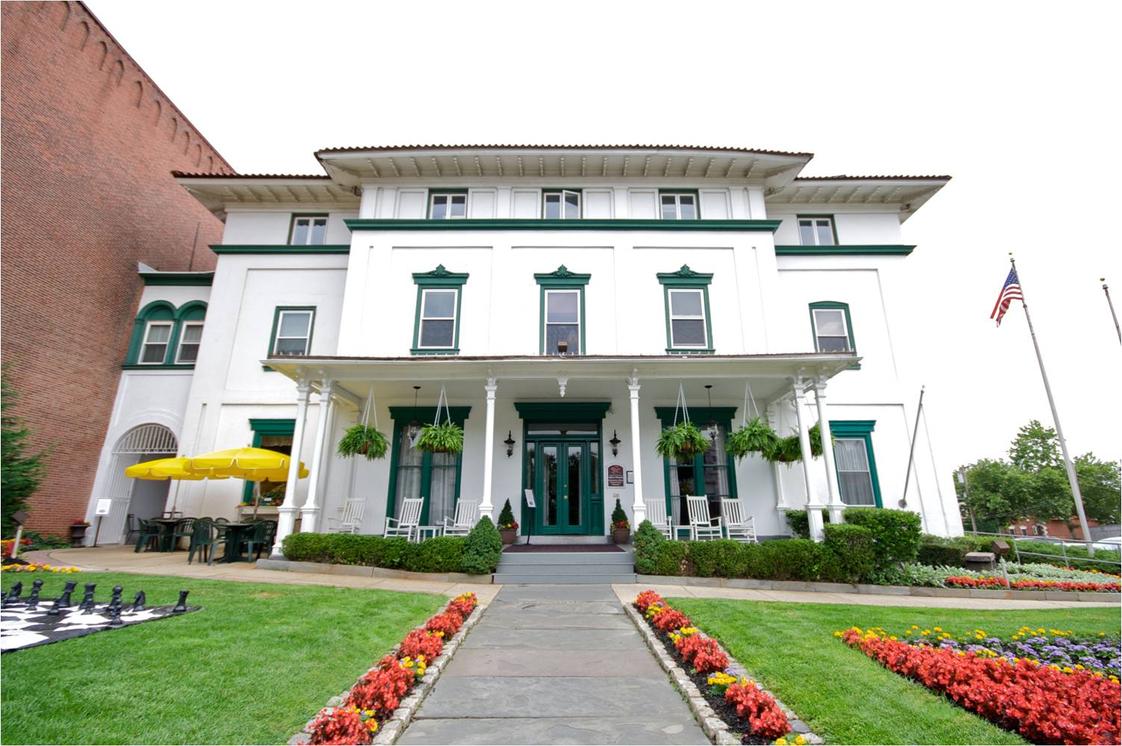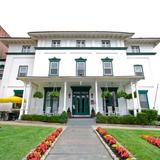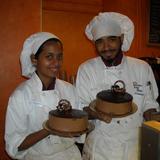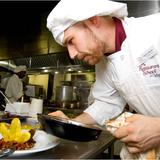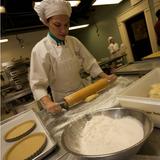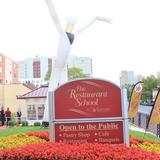- Centrally located in the cultural center of the world-class city of Philadelphia, Walnut Hill College, formerly The Restaurant Schook, offers students dynamic Bachelor's and Associate degree programs in Culinary Arts, Hotel Management, Pastry Arts, and Restaurant Management and includes tours of France, Bahamas and England. Hospitality is at the heart of all we do. We look forward to meeting you.
School Highlights
Walnut Hill College serves 325 students (100% of students are full-time).
The college's student:teacher ratio of 15:1 is same as the state community college average of 15:1.
Minority enrollment is 67% of the student body (majority Black), which is more than the state average of 48%.
Quick Stats (2025)
- Enrollment: 325 students
- Private-state tuition: $23,550
- Acceptance Rate: 79%
- Student:teacher ratio: 15:1
- Minority enrollment: 67%
- Source: Verified school update
Top Rankings
Walnut Hill College ranks among the top 20% of public schools in Pennsylvania for:
Category
Attribute
Diversity
School Overview
The teacher population of 21 teachers has stayed relatively flat over five years.
Walnut Hill College
(PA) Community College Avg.
Carnegie Classification
Special Focus Four-Year: Arts, Music & Design Schools
Baccalaureate/Associate's Colleges: Mixed Baccalaureate/Associate's
Institution Level
Four or more years
At least 2 but less than 4 years
Institution Control
Private for-profit
Private not-for-profit
Total Faculty
21 staff
58 staff
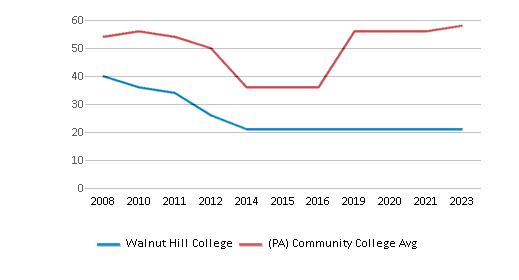
School Calendar
Student Body
The student population of Walnut Hill College has declined by 17% over five years.
The student:teacher ratio of 15:1 has increased from 8:1 over five years.
The Walnut Hill College diversity score of 0.84 is more than the state average of 0.68. The school's diversity has grown by 103% over five years.
Total Enrollment
325 students
361 students
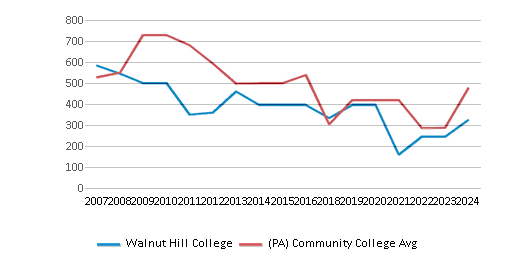
Student : Teacher Ratio
15:1
15:1
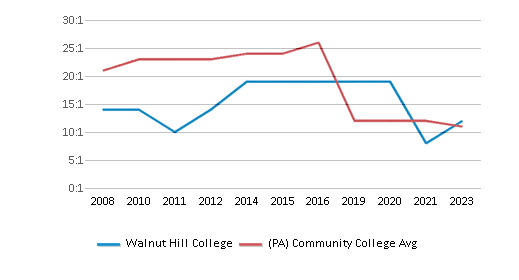
# Full-Time Students
325 students
310 students
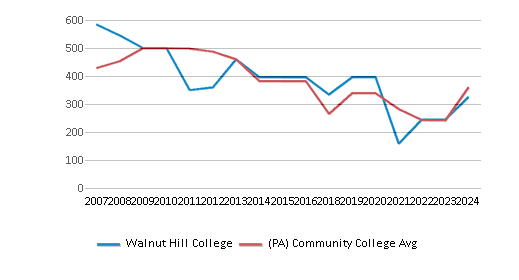
# Part-Time Students
n/a
134 students

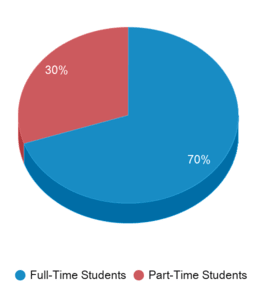
# Enrollment Undergraduate
325 students
300 students
# Full-Time Undergraduate Students
325 students
300 students
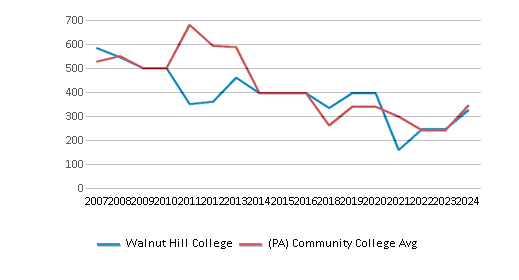
# Full-Time Graduate Students
n/a
10 students
# Part-Time Undergraduate Students
n/a
134 students
# Part-Time Graduate Students
n/a
12 students
Total Dormitory Capacity
120 students
330 students
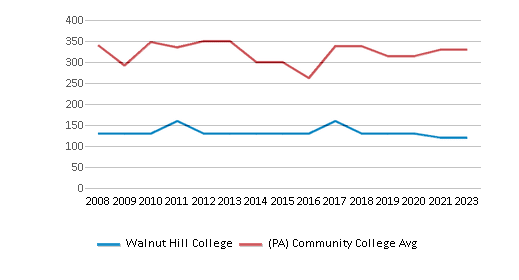
% American Indian/Alaskan
1%
n/a
% Asian
2%
5%
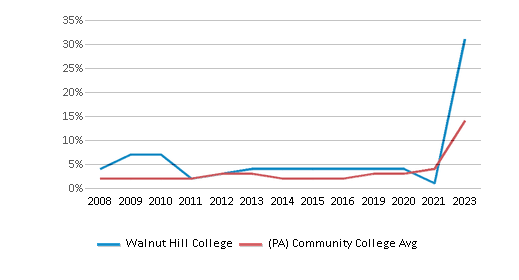
% Hispanic
7%
11%
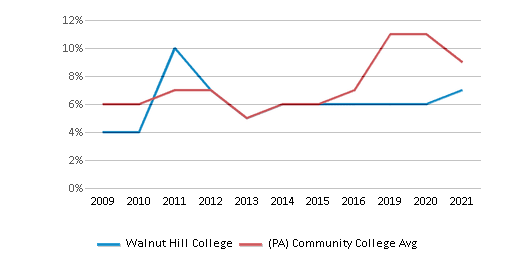
% Black
17%
15%
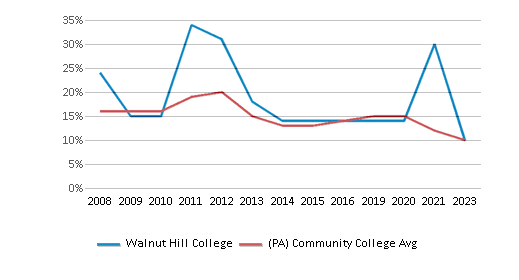
% White
33%
52%
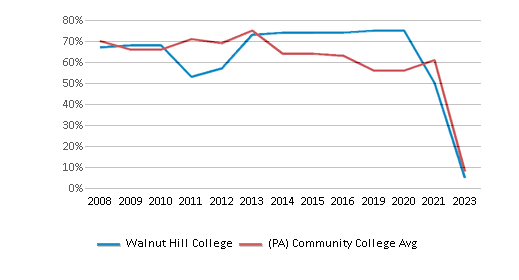
% Hawaiian
12%
3%
% Two or more races
7%
3%
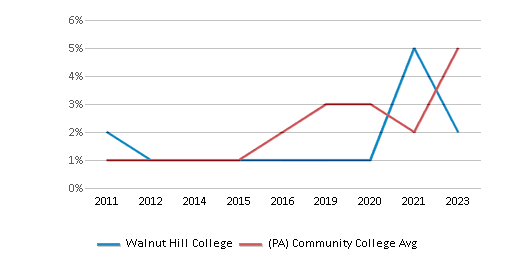
% Non Resident races
n/a
1%
% Unknown races
20%
10%


Diversity Score
0.84
0.68
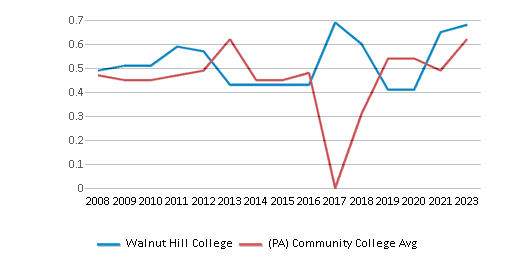
College Completion Rate (Students who graduate in less than 4 years)
n/a
0.6111%
College Completion Rate (Students who graduate in 4 years or more than 4 years)
0.6116%
0.3822%
Average Graduate Earnings (10 Years)
$36,900
$34,900
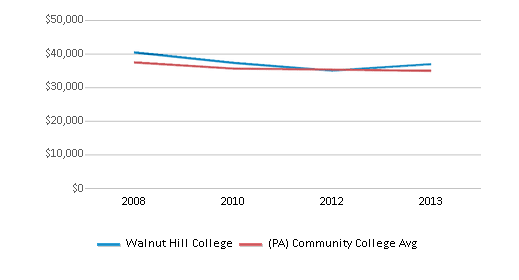
Tuition and Acceptance Rate
The private state tuition of $23,550 is more than the state average of $17,177. The private state tuition has stayed relatively flat over four years.
Private State Tuition Fees
$23,550
$17,177
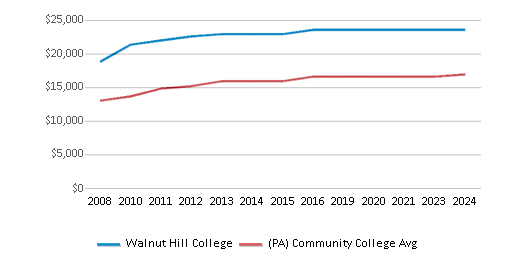
% Students Receiving Some Financial Aid
89%
91%
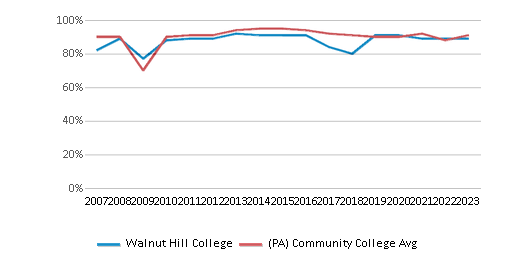
Median Debt for Graduates
$20,000
$13,620
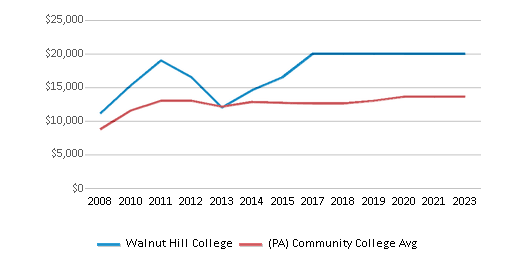
Median Debt for Dropouts
$9,500
$6,234
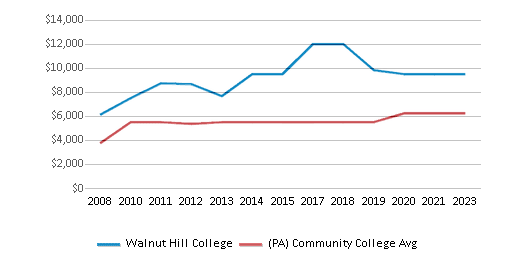
Acceptance Rate
79%
78%
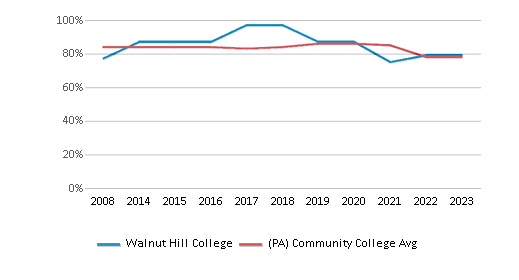
SAT Reading
n/a
460
SAT Math
n/a
470
SAT Writing
n/a
435
ACT Composite
n/a
20
ACT English
n/a
20
ACT Math
n/a
21
ACT Writing
n/a
7
Source: 2024 (or latest year available) Integrated Postsecondary Education Data System (IPEDS) , School Administrators
School Notes
- Founded by a restaurateur, chef, maitre'd, and educational specialist, the school's campus has been designed to support industry trends and educational goals. Its European Courtyard complex features open-to-the-public restaurants including our new Bistro Perrier featuring Chef Georges Perrier, Master in Residence. This academic setting enables students to participate in a real-life kitchen setting and to manage front-of-house service. Walnut Hill College, formerly The Restaurant School, offers a specially designed curriculum for individuals planning a successful career in the culinary and hospitality field. For over 44 years, Walnut Hill College has received national acclaim for its innovative approach to education. We offer a real life, interactive educational experience in a bustling restaurant environment in the heart of University City, Philadelphia - home to one of the largest student populations in America. Students are encouraged to join one of our student organizations, which provide them a chance to explore famous restaurants, hotels, pastry shops, and local wineries. Our clubs enable students to network with industry leaders and build their rm The heart of Walnut Hill College's campus is a picturesque European courtyard situated in the midst of an American college environment. The college's major building, Allison Mansion, features bright restaurant kitchens, multi-media enhanced lecture halls, computer labs, a library, and four different themed open-to-the-public restaurants, which serve as part of educational life. As the college grows and new buildings are added, the Mansion continues to service as the hub of campus life.
Frequently Asked Questions
How much does Walnut Hill College cost?
Walnut Hill College's private state tuition is approximately $23,550.
What is the acceptance rate of Walnut Hill College?
The acceptance rate of Walnut Hill College is 79%, which is higher than the state average of 78%.
What is Walnut Hill College's ranking?
Walnut Hill College ranks among the top 20% of community college in Pennsylvania for: Diversity in US community colleges.
In what neighborhood is Walnut Hill College located?
Walnut Hill College is located in the University City neighborhood of Philadelphia, PA.
Recent Articles

Obtaining Your Bachelor's Degree at a Community College
Explore the evolving landscape of community colleges offering bachelor's degrees, addressing affordability, accessibility, and workforce needs.

A to Z of Community College Certificates and Courses
From business and healthcare to technology and skilled trades, the article showcases the breadth of options available to students seeking to enhance their knowledge, develop new skills, or pursue career advancement.

What is a Community College?
This comprehensive guide explains what a community college is, its history, and its role in higher education. It covers the types of programs offered, differences from four-year colleges, benefits of attending, and important considerations for prospective students, providing valuable insights for those exploring educational options.

